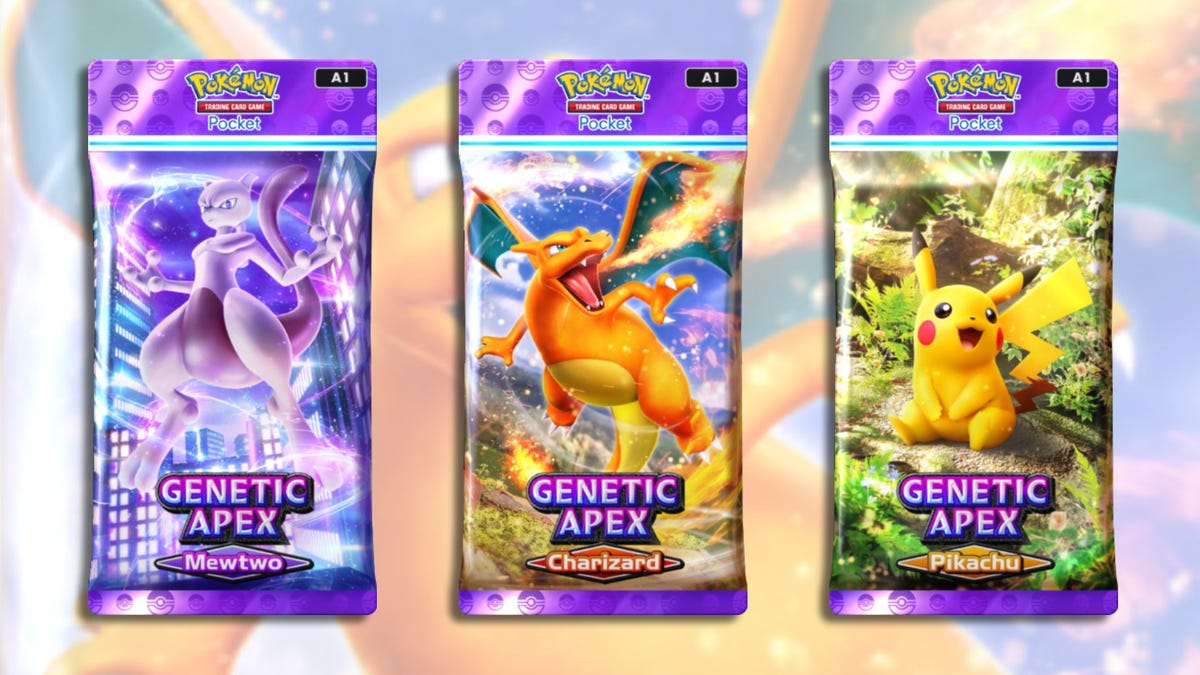A New Era for Pokémon Trading Card Game with Pokémon TCG: Pocket
The Pokémon Trading Card Game (PTCG) is celebrating its 27th anniversary this year, having been launched just a year shy of its video game counterpart. While headlines often highlight astonishing prices for classic cards, the competitive aspect of the game is witnessing unprecedented popularity. In a bid to capitalize on this trend, The Pokémon Company International (TPCi) has announced a new free-to-play mobile experience named Pokémon TCG: Pocket. This title attempts to merge streamlined gameplay with Pokémon’s beloved charm, eliciting comparisons to the popular card game Marvel Snap.
Streamlined Gameplay for Mobile
The gameplay of Pocket simplifies the traditional PTCG mechanics, creating a faster, mobile-friendly version. While the live version of PTCG is less intricate than Magic: The Gathering, it still poses challenges for newcomers due to its complex mechanics and constantly evolving meta. Pocket seeks to sidestep these hurdles, offering an instant and fast-paced game reminiscent of Marvel Snap, but uniquely infused with Pokémon elements.
One significant draw for Pokémon enthusiasts is the daily offering of two free card packs, a feature that has been met with excitement. However, each pack contains only five cards, a disappointing reduction from the standard ten cards found in physical packs, although the potential for obtaining rare cards remains equal. Among the standout features are the so-called “Immersive Cards.” These cards transform into stunning animations when tapped, engaging players with dynamic visuals that showcase Pokémon in diverse settings before reverting to their original artwork.
Redefining Competitive Structures
Pokémon TCG: Pocket introduces several innovative gameplay changes, notably reducing deck sizes from a traditional 60 cards to just 20. Instead of incorporating Energy cards, players will gain Energy resources each turn, enhancing the speed of matches. The game replaces Prize Cards—used to win in standard matches—with “K.O. points,” requiring players to score three by knocking out opponent cards. Dice for damage have also been eliminated, streamlining the combat experience. Trainer cards remain in the lineup, though their precise role in gameplay remains to be fully understood as of the initial demo.
It’s crucial to stress that Pocket is not intended as a direct shift of the live game to a digital format—that idea has already been attempted with Pokémon TCG Live. Instead, Pocket offers something innovative and distinct, ensuring it stands apart from its predecessors.
Addressing Pokémon TCG Live
Pokémon TCG Live, the previous attempt at a digital card game, has received considerable criticism. The former Pokémon TCG Online provided a more authentic digital platform, enabling players to scan codes from real packs to access digital equivalents. However, TCG Live significantly reduced the number of cards received from code scans and eliminated trading features altogether, which contributed to its lackluster reception. Many players found it unplayable and uninspiring due to these limitations.
Unique Collections and New Art
The appeal of Pokémon TCG: Pocket extends beyond simplified gameplay. The launch set, dubbed the humorously named Genetic Apex, consists of 200 unique cards featuring a mix of nostalgic artwork and exclusive new designs. Distinct packs designed for Pocket do not overlap with the physical card game and introduce an entirely separate collection aspect. During testing, I had the opportunity to open several packs and was fortunate enough to discover breathtaking full-art cards created by both well-known and emerging PTCG artists—pieces of art that one could wish to hold instead of viewing only on a mobile screen.
In terms of managing collections, Pocket offers features absent in Live—such as beautiful digital binders and sharing capabilities for collections. Additionally, the game includes the Wonder Pick feature, allowing players to take a chance at acquiring specific cards opened by others.
Game Mechanics and Tactical Battles
Upon starting your journey in Pocket, players are guided through the deck-building process via tutorials and can utilize “Rental Decks” to test strategies without the need to permanently add cards to their collections. Matches develop through familiar gameplay mechanics: players draw cards, position Pokémon, and power their attacks using Energy generated from the Energy Zone. Unlike its more complex counterpart, Pocket offers a more tactical experience designed for quicker sessions. Attack power is lessened to prevent one-hit knockouts, encouraging nuanced strategies and player decisions.
Thus, Pokémon TCG: Pocket provides a revitalized experience, making it accessible for mobile players and maintaining essential elements that resonate with long-time card game fans. Although it is not groundbreaking, it is intentionally designed for fun and brisk gameplay, promoting pack opening and card collecting as central elements.
The Gacha Experience
Despite its engaging design, the game does carry concerns as it introduces a gacha-style mechanic. Players can earn two free packs per day, and other opportunities exist to acquire additional cards. However, to play, users require a minimum of 20 cards, leading to eventual costs for building a comprehensive collection and deck. This gacha aspect introduces real-money purchases facilitated through Poké Gold, allowing players to shorten wait times for packs or unlock premium missions through a monthly subscription.
While the presence of monetary transactions may discomfort some, it’s important to remember that this free app is a business initiative aimed at generating revenue. Nonetheless, the target demographic remains children, leading to potential concerns about encouraging spending on in-app purchases at such a young age.
In an age where children should be able to engage with games without financial pressures, it’s disheartening to see a shift towards gacha mechanics, especially when previous Pokémon TCG titles allowed free play without monetary concerns.
Ultimately, as a fan of collecting and playing Pokémon cards, I hold onto hope that Pokémon TCG: Pocket will flourish despite its gacha structure. This new venture could indeed be significant, although I may choose to keep it from my young son.

